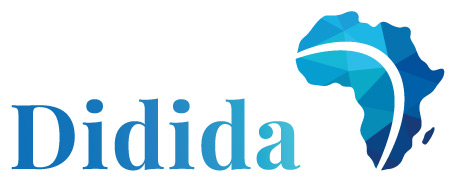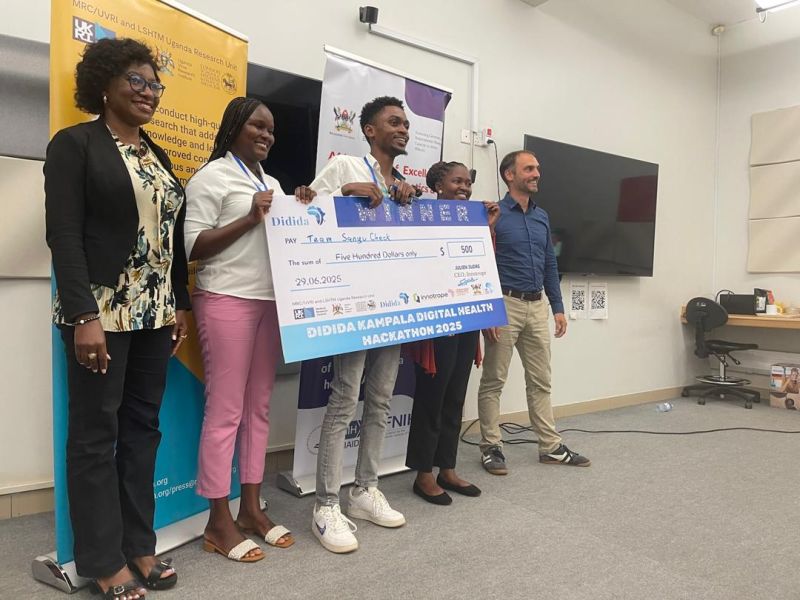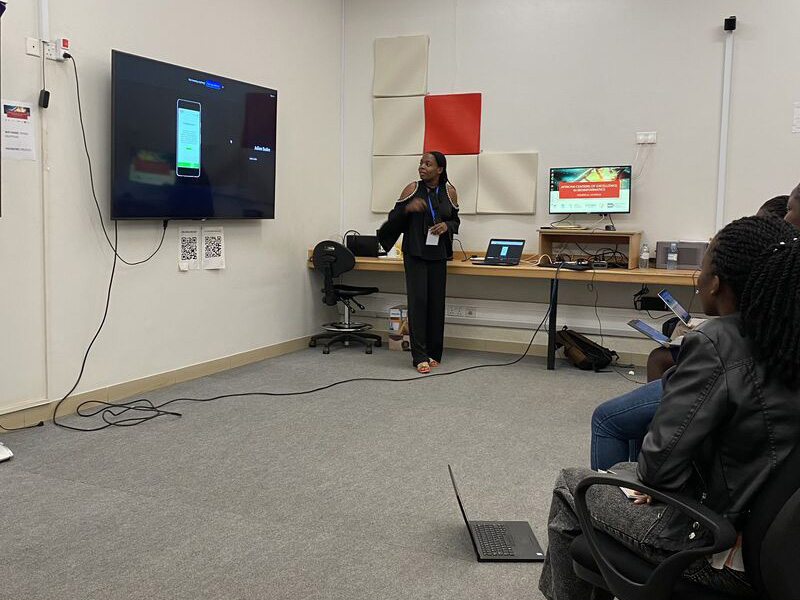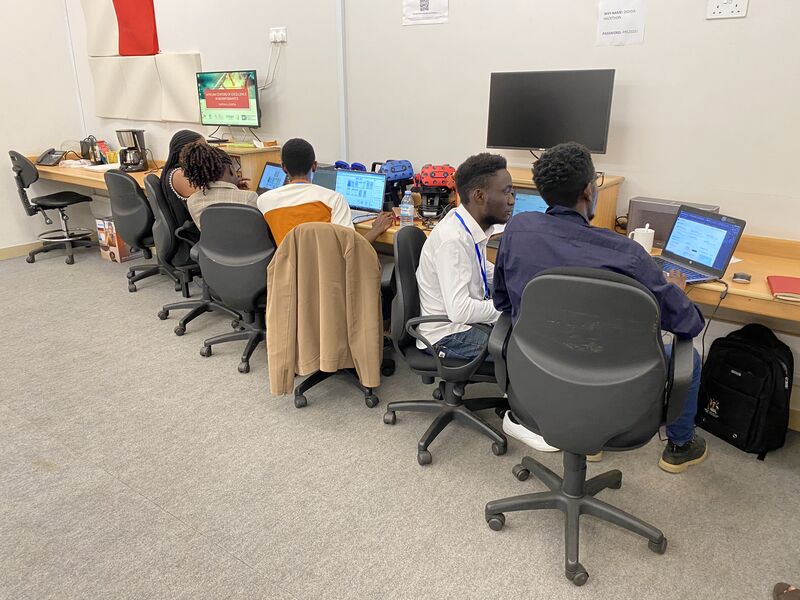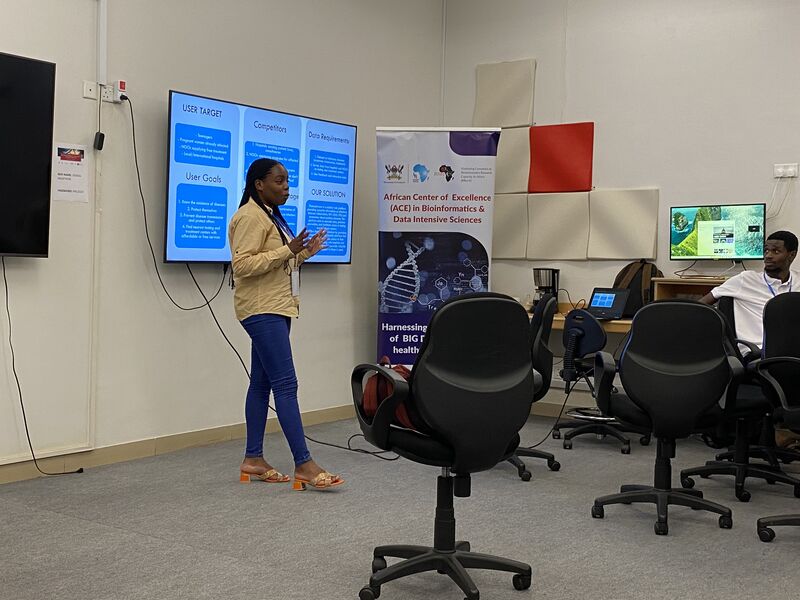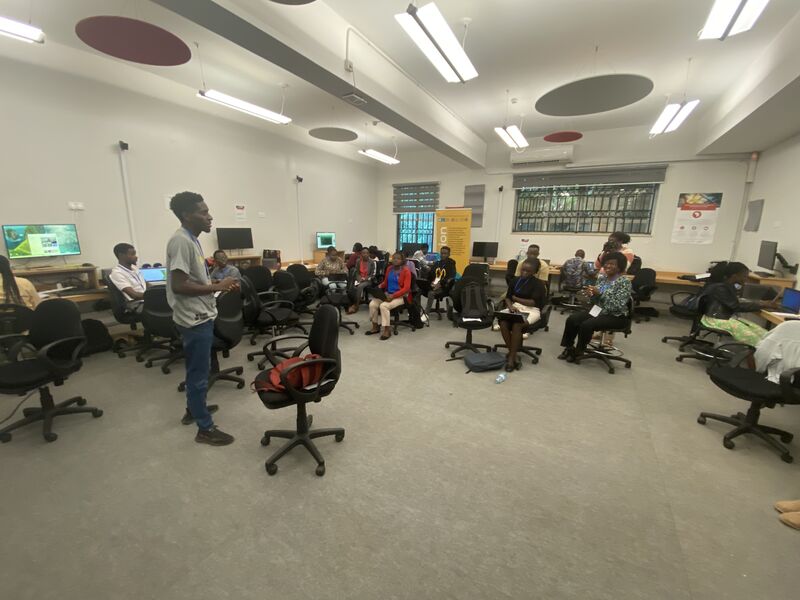Empowering Digital Health Innovation: The First Didida Hackathon in Uganda
Kampala, 28–29 June 2025 – Makerere University African Centre of Excellence in Bioinformatics
The DIDIDA project took a major leap forward in community engagement and local innovation by organising its first Digital Health Hackathon in Kampala, Uganda. Co-hosted by MRC/UVRI & LSHTM Uganda Research Unit, Makerere University, and Innotrope, the event brought together passionate students and young professionals from across the Kampala region to co-design digital solutions addressing key public health challenges.
Held at the Makerere University African Centre of Excellence in Bioinformatics (ACE), the hackathon ran over an intensive weekend, culminating in the development of functional digital prototypes focused on health issues faced by Ugandans.
From Ideas to Prototypes in 36 Hours
The hackathon kicked off with an idea generation session, where participants pitched 13 promising concepts. Through a collective voting process, these were narrowed down to six final project ideas, each forming the foundation of a new interdisciplinary team. Participants were then introduced to the fundamentals of user journey design and Figma prototyping, and had just three hours to build their initial wireframes.
The second day was a race against time, as teams moved from planning to execution, developing their final presentations under pressure. Despite the tight timeline, all six teams succeeded in delivering complete, high-quality prototypes—a testament to the participants’ dedication, teamwork, and creativity.
A Celebration of African Talent and Pragmatism
The final pitches were presented in front of a seven-member jury, composed of experts from academia, public health, digital innovation, and the DIDIDA consortium. While a single team was selected as the winner, the jury emphasized that all projects demonstrated significant potential and deserved further support.
The winning team, made up of Linda Ochen, Cherubin Amani (from Bugema University, DRC), and Esther Nakiggude (from Uganda Management Institute), presented “Sanyu Check”—a mobile application designed to monitor the health and wellbeing of pregnant women and adolescent girls in underserved rural and urban areas of Uganda.
Their solution stood out for its practicality, user-centred design, and direct alignment with public health priorities. The team embodied the DIDIDA spirit: blending local knowledge, social impact, and digital innovation to develop tools that can make a difference on the ground.
More Than a Competition
Beyond the competition, the hackathon fostered a strong sense of collaboration, inclusion, and empowerment. Notably, all participants stayed committed throughout the event—no dropouts, no unfinished work. The atmosphere during the winner announcement was both joyful and moving, with mutual support and respect among teams.
This event also underlined a key lesson: African youth are not just future leaders—they are already leading. Their awareness of health challenges, combined with a pragmatic mindset and strong digital skills, shows that they are ready to shape the continent’s health future.
What’s Next?
The DIDIDA team and partners are already exploring ways to support the continuity of the projects born during the hackathon, including mentorship, visibility, and possible integration into ongoing research or pilot activities. Discussions are also underway to organise similar hackathons in other countries involved in the project.
As part of its mission, DIDIDA is committed to fostering African innovation ecosystems that are inclusive, sustainable, and impact-driven. This hackathon was a clear step in that direction—and only the beginning.
Want to know more?
Are you a student and you want to learn more? A researcher seeking to consult our publications? A citizen eager to better understand the issues? A decision-maker who can promote this innovation? A journalist looking for an engaging story to tell?
